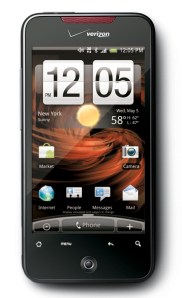
Citing “mystery fees” and “bill shock” that sometimes send consumers’ mobile phone bills into the stratosphere, FCC chairman Julius Genachowski has outlined proposed rules that would require mobile carrier to alert customers when they exceed service limits on their mobile voice, data, or text plans. The regulations would also require carriers to disclose and promote tools that are available to track mobile usage, claiming “too many consumers don’t know about them.”
“Most people don’t know what a megabyte is,” said Genachowski in a speech before the Center for American Progress (PDF). “But they do understand when they get an alert telling them they’re about to go over their limit and incur additional fees.”
A survey (PDF) conducted by the FCC finds that about one is six Americans who use mobile phones had experienced “bill shock,” where their mobile bills wound up being substantially higher than they anticipated due to carrier overage charges. The FCC says it received some 764 complaints about excessively high bills in the first half of 2010, with 20 percent of those bills totaling up to $1,000 or more. The largest monthly bill reported to the agency totaled over $68,000. Mobile carrier Verizon Wireless is also under investigation for overcharging some 15 million consumers for data services—typically a $1.99 charge for accessing any data at all, such as accidently touching a browser button. The company is apparently planning to issue refunds.
The FCC also says it is studying how mobile carriers implement early termination fees (ETFs) for consumers who want out of their mobile service agreements before a contract ends, with an eye towards how those service agreements are tied to services like video and data services. “Confusion is particularly high for fixed broadband and bundled plans where these fees are a fairly recent development,” said Genachowski. “There’s no reason we shouldn’t have clear and simple disclosure around ETFs.”
Historically, the communications and wireless industries have resisted regulations, including those requiring consumer disclosure, characterizing them as prescriptive and expensive to implement, thereby driving up overall costs of providing mobile service. At the same time, carriers like Verizon Wireless have always maintained that they provide ways for customers to track service usage, and that incidents such as those reported to the FCC are aberrations.


